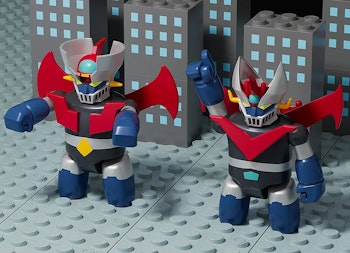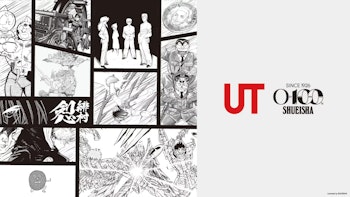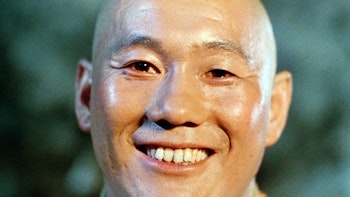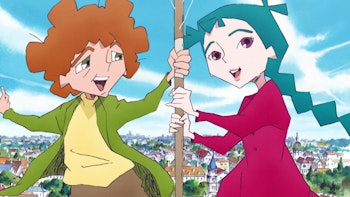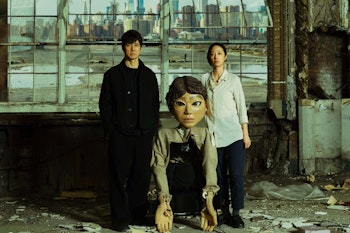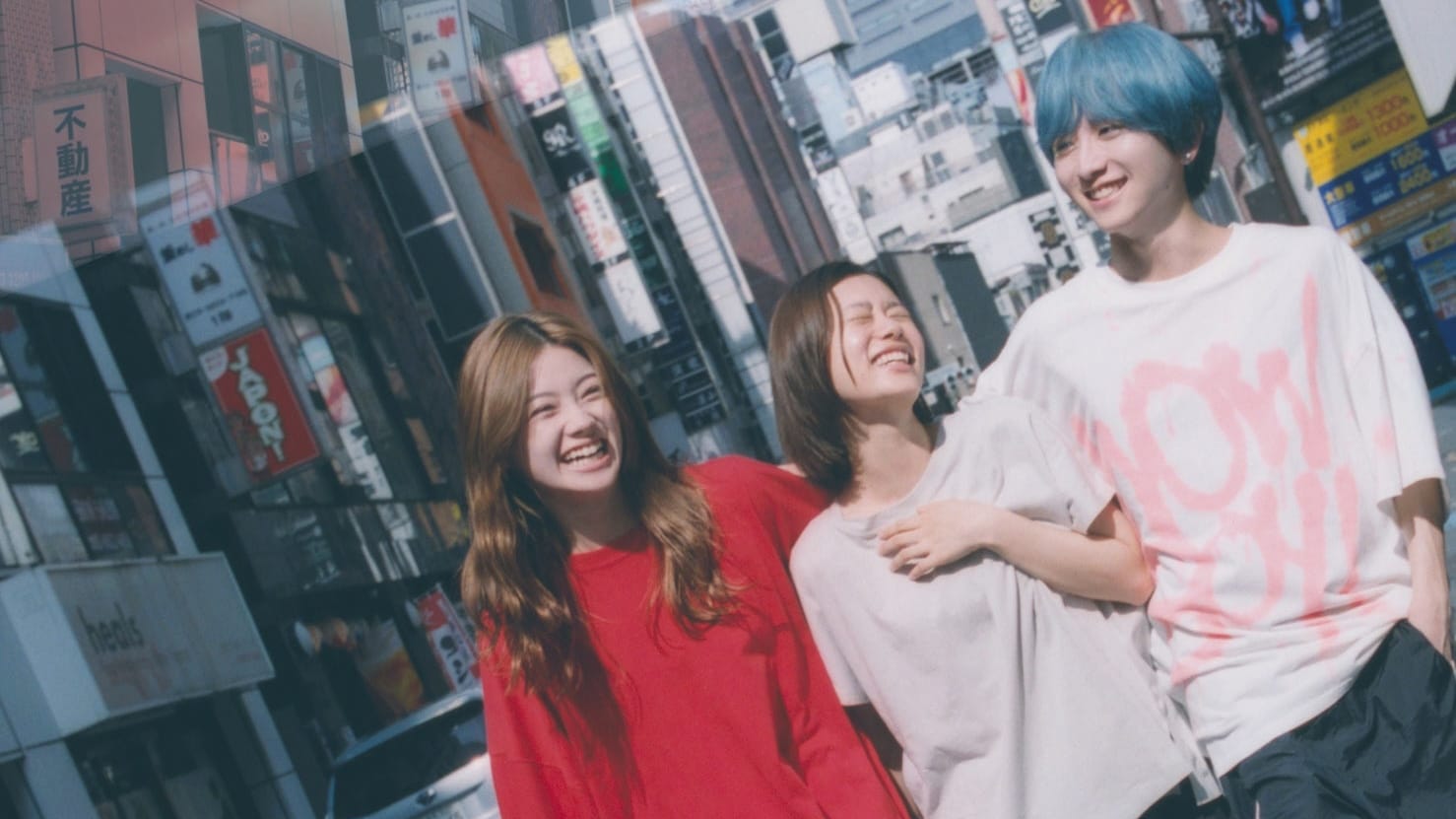
The first meeting between Yukari and Rai is a mix of fate and tragic circumstance. Rai has a hostess job in Kabukicho, though the specifics of this work are deliberately left unspoken, leaving a beautiful, mysterious facade that cares for those around her but struggles to open up. Yukari has little luck in love and a strained family relationship, but she has her BL anime about anthropomorphized gay yakiniku menu items. The moment they meet, she’s passed out on the floor in the shady nightlife district of Shinjuku, Rai swooping in like a kind, distant savior.
Meets the World (directed by Daigo Matsui) is a story, ultimately, about embracing yourself, and the challenges of living a life when a sense of self is lost or denied. Both our main characters face this in different degrees. Yukari (Hana Sugisaki) lacks confidence to be open on what she likes and find that happiness with others that only comes from opening yourself, while Rai (Kotoka Minami) is seemingly popular, but due to her past and her work can’t find a way to love herself. She comes to Yukari’s help one fateful night and before long lets this girl live with her in her apartment, she’s struggling to find the desire to keep on living and obsesses and longs to die, the words of others unable to break through and the man she still loves two years on still a little on her mind. Her apartment embodies this: despite a well-kept external appearance as successful and stable, the cleanliness of her apartment leaves much to be desired.
Mixed within all this is another Kabukicho host, the energetic Asahi (Rihito Itagaki) that fills the joy and excitement the others lack in an effort to lift their spirits, even if he himself is hiding his own anxieties and the stresses of managing the parasocial and intimate bonds that form inevitably through his work. All of them found their way to Kabukicho in their own way, and they’re trying to find a way through it, if they can.
For all the film wades into more serious subject matter with respect and care, this is also a film willing to be humorous and show the fun of their lives that also exists. After all, Yukari’s beloved BL series is a series whose concept is deliberately absurd while also turning her into a BBQ addict, and even she recognizes the silliness as she has fun with her shared friends and gets lost in rambling intently about the series to others. But it’s charming, too, to see this passion. It helps her appear unique, independent, and like her own person distinct from the darker aspects of life in Kabukicho, celebrating the connections it brings just as much as it pokes fun at the consumerism of it all.
The movie blends humor with its more considered view of the emptiness at the heart of these people; those who have their friends and people close to them, but no one with whom they can deeply connect, love and share everything with. While Yukari has found camaraderie through a shared love of this BL series, that's where it starts and ends. For our other characters, being a host means giving many different faces to many different people, until the real one is lost along the path of pleasing everyone but yourself.
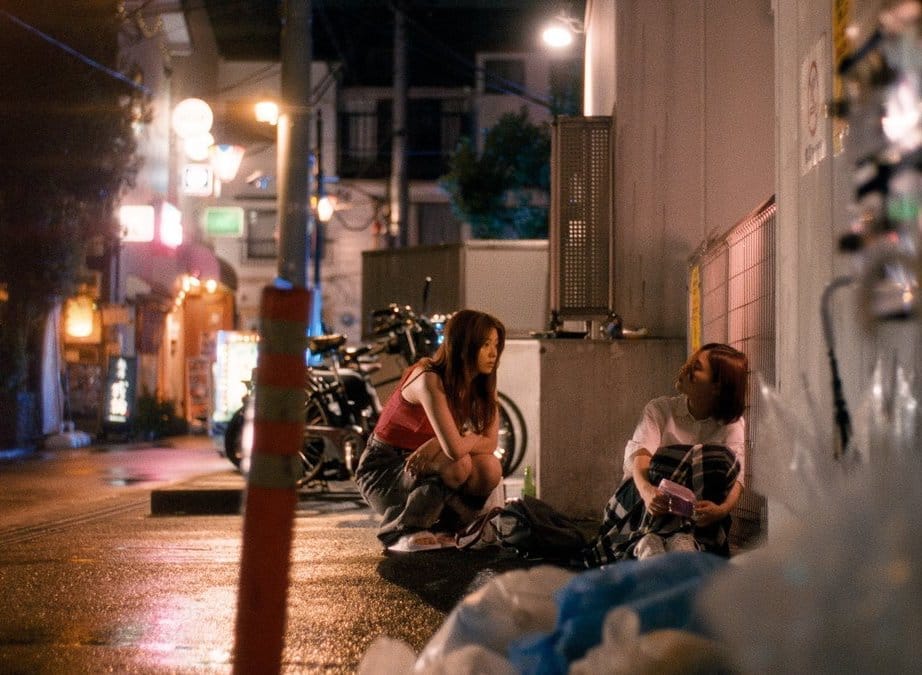
You could even take this question literally. Rai jokes anyone could become that seemingly-perfect face from Yukari's first meeting for 3 million yen, the cost of the surgeries she had to reconstruct her appearance. It’s not a suggestion that she should do it, and Rai almost seems determined to shelter her from that world. But it's telling.
There are layers to the interpersonal relationships between all three of these characters that elevates Meets the World into something that’s difficult not to leave you caring for the wellbeing of these characters before the end. It’s easy to view Kabukicho by its reputation of night life, controversy, sleaze, yakuza, the underground and much, much more, but that doesn’t make everyone in it automatically evil or a victim. The film’s greatest strength is understanding this and not judging those who make the choice to take on the life in place of reflecting the challenges of finding a self that only becomes more difficult for those in such complex lines of work and life that anyone could relate with.
That being said, this common understanding the film builds doesn’t make the film a generic tale that happens to take place in Kabukicho, either. Meets the World’s intent is merely to create a film where the truth of everything, well, meets the world. Yuki and Oshin, a pair consisting of a mysterious author who frequents the latter’s bar where all our characters frequent, provide this dose of reality for the film by reflecting an older face who shares this space.
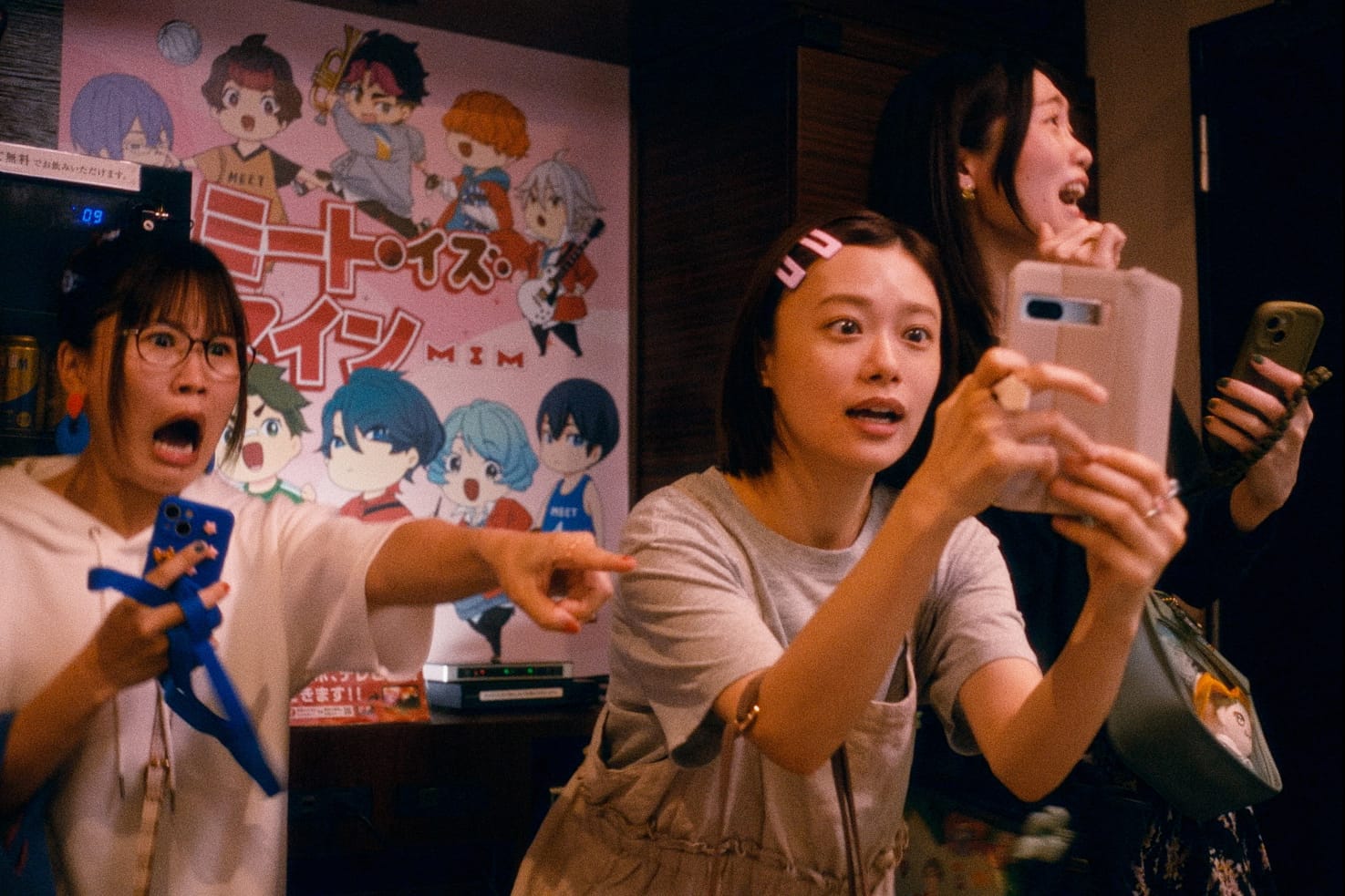
The question is whether you, as an audience, can find common ground when the nihilistic, depressed drones of the inner worlds of these characters finally becomes too much. When the characters begin to act on their impulses, with the others left to face the consequences and space left by this, how much you will find this emotional journey and the lost wandering in hope they can find the next step forwards impacting on you?
Director Akiko Ohku has become somewhat of a favorite in Japanese cinema in recent years, winning numerous Tokyo International Film Festival audience awards for films like Tremble All You Want. These films, while often on a more romantic focus compared to the platonic friendships and family struggles portrayed here, resonated in their catharsis. The difference between the bonds of friendship and love, however, is how much the webs of a relationship between friends bonds far more than just two people and runs beyond that carnal desire into something more abstract and difficult to define yet deeply intwined into the emotional core of your being. I found this allowed the search these characters undergo for answers both before and after this turn in the story more resonant.
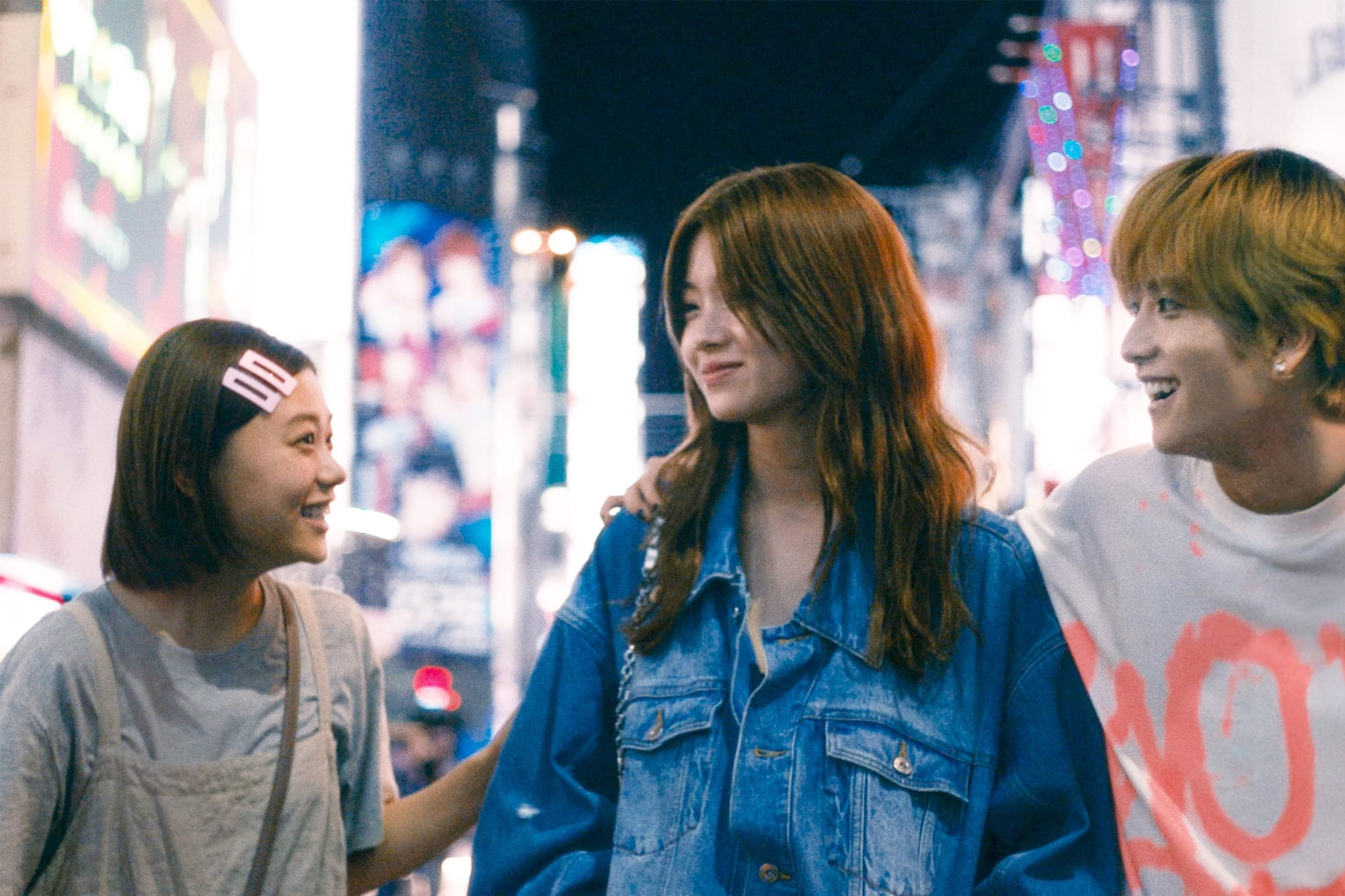
We aren’t ripping through every morsel of their characters to get to their inner core. Rai remains mysterious, and it’s hard to say any of them turn their lives around. But as they deal with this event, they come to their own decisions both good and painful. They find a new step. Personally, I find that more powerful and important. As a result, as the sun rises over the nightlife city, I’d place this as amongst the director’s best for its sheer honesty in the place of the emotional artifice of their closest comparison. After being unable to face themselves, they can all, maybe, meet the world with their head lifted, and move forwards.
Japanese Movie Spotlight is a monthly column highlighting new Japanese cinema releases. You can check out the full archive of the column over on Letterboxd.



